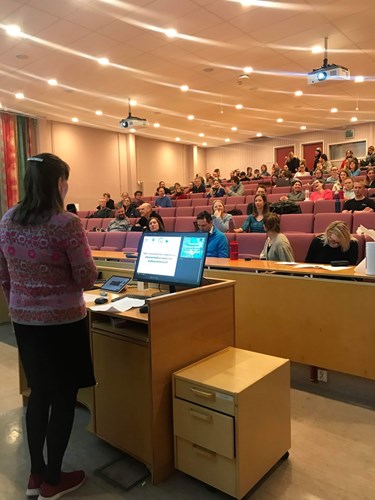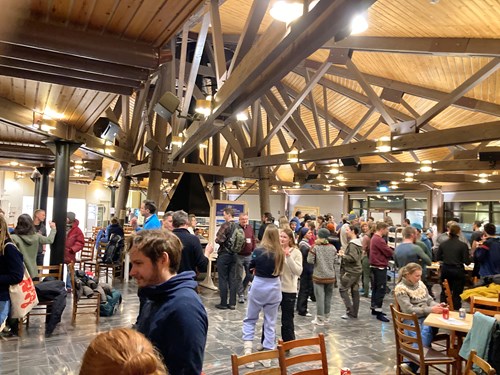Permafrost is underlaying large parts of the Arctic landscapes, and is an important part of the Arctic Earth system. It is rapidly changing due to climate change. To explore and understand the changes and their impacts on local societies, a two-day workshop "Longyearbyen permafrost activities" was held at The University Centre in Svalbard (UNIS) on 15-16 March. The workshop brought together early career and senior researchers from the natural sciences, engineering and social sciences researching permafrost in various projects in Longyearbyen, Russia, and Greenland. UArctic network funding enabled this as the last in a row of three community-based permafrost workshops, the first two held in Illullissat, Greenland and Aklavik and Inuvik, Canada earlier this spring.

Photo: Susanna Gartler
The aim of the workshop was to present and discuss ongoing permafrost research methods, activities and results in Longyearbyen, focusing on research conducted by early career researchers. Societal impacts of permafrost thaw and adaptation measures, identified knowledge needs and research priorities, and collaborations between science and society were discussed. The PermaMeteoCommunity, Nunataryuk, PermaRich and PCCH-Arctic projects were presented together with the Shared Arctic Variable Permafrost of the Arctic Passion project. The projects are EU funded, funded by the Norwegian Research Council, UNIS and the FRAM Centre.
Sharing project results with local stakeholders and the general public was a main focus. Representatives from the Local Council and the Governor of Svalbard joined us for a session presentating projects and research findings, and discussing adaptation, science and society, and permafrost knowledge needs. In a public evening outreach seminar 14 researchers presented glimpses of their research followed by an open meeting between the researchers and the public to further discuss permafrost in Longyearbyen while enjoying coffee and cake in the UNIS cafeteria. The seminar was attended by 97 people.

Photo: Alexandra Meyer
The workshop was a great success, with interesting discussions, knowledge exchange learning about each other's research and planning of future joint activities. We are grateful for the collaboration between the projects, to UNIS for hosting the workshop, and to UArctic for funding this event. The workshop highlighted the importance of interdisciplinary research to understand the complex and interconnected issues surrounding permafrost and its impacts. We look forward to continuing the dialogue!
Hanne H. Christiansen, Dr. Prof.
UArctic Chair Permafrost
Geophysics Department
The University Centre in Svalbard, UNIS
Norway
